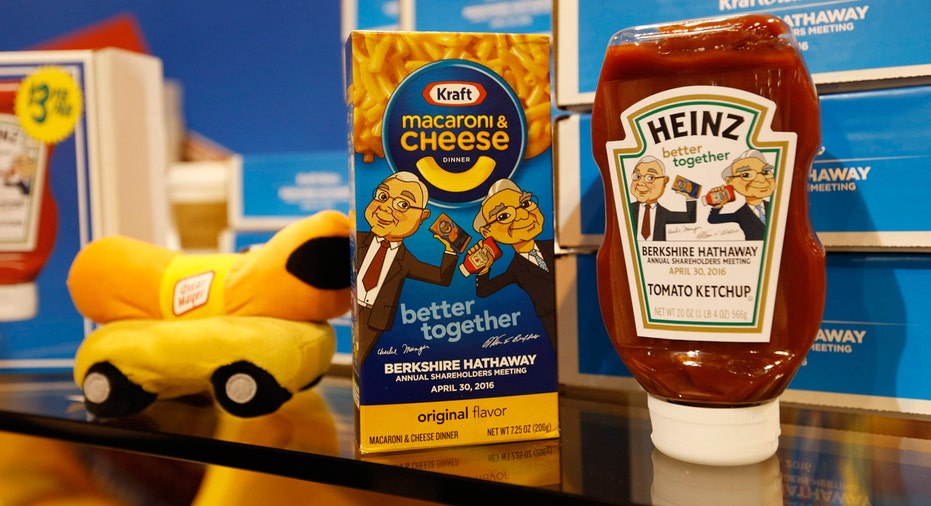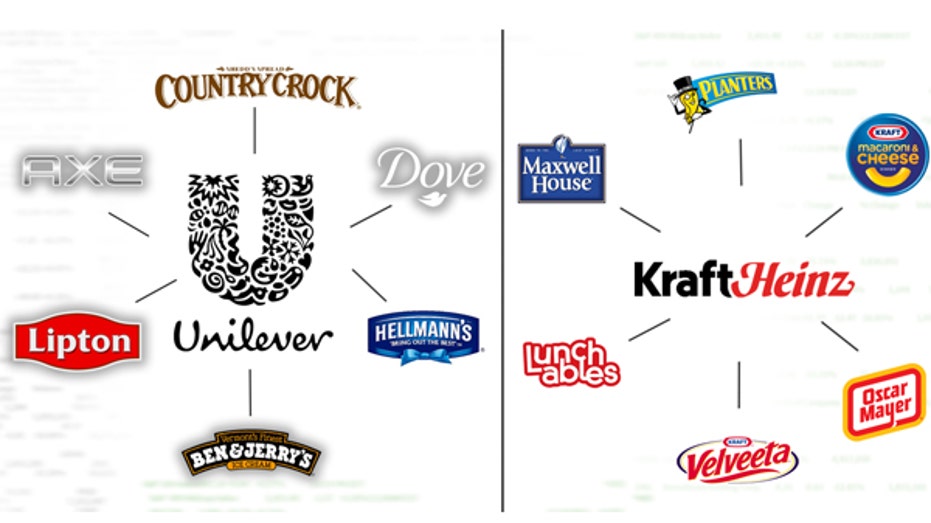Unilever's Rejection of Kraft Heinz Mega Bid Takes a Bite Out of Food Stocks

A food fight might be brewing on Wall Street.
Unilever (NYSE:UN), whose large U.S. brands include Lipton iced tea, Dove soap and Ben & Jerry’s ice cream, roundly rejected a proposed $143 billion takeover approach on Friday made by Warren Buffett-backed Kraft Heinz (NYSE:KHC), saying the deal “fundamentally undervalues” the company.
“Unilever rejected the proposal as it sees no merit, either financial or strategic, for Unilever’s shareholders. Unilever does not see the basis for any further discussions,” the company said in a statement.
Despite the firm stance, it appears Kraft Heinz isn’t backing down.
The maker of Velveeta cheese, Heinz ketchup, Kool-Aid, Cool Whip and Oscar Mayer meats, said it “look[s] forward to working to reach [an] agreement on the terms of a transaction,” though it added there’s no certainty another formal proposal will be made. A combination of the two companies would bring together some of the most well-known consumer brands in the world, and would be the second-largest transaction on record, surpassing 2015’s mega merger between beer giants SAB Miller and Anheuser Busch (NYSE:BUD), according to data from Dealogic.
“The main benefits from such a deal would be major cost reduction as head offices and regional management could be merged. There would also be some purchasing benefits from increased buying power,” said John Colley, a Professor of Practice at Warwick Business School.

Still, he said any possible marriage hinges on how much Kraft Heinz is willing to pay, whether benefits of such a transaction will be passed along to shareholders (who will have to approve the deal), and how regulatory bodies would view a combined company’s sizable market power.
What’s more, a merger of the two brands could prove to be cumbersome. In that respect, Stifel analyst Christopher Growe called the possible acquisition “sloppy.”
“We don’t see the logic or the opportunity around this transaction, at least in relation to a large-scale packaged food company,” Growe said in a note. “Kraft Heinz prize scale and operating efficiency and given Unilever’s varied brands, categories, and assets, this just seems to be a difficult business to integrate and manage,” he explained while also noting Unilever’s emerging markets business is an attractive hook for Kraft Heinz.
Despite Unilever's rebuff of the initial bid, the company's shares, along with those of Kraft Heinz, jumped to new highs on optimism a deal with ultimately come together. Stock moves were not so positive for other major food-industry companies including Mondelez (NASDAQ:MDLZ), General Mills (NYSE:GIS), Kellogg (NYSE:K) and Campbell’s Soup Company (NYSE:CPB).
| Ticker | Security | Last | Change | Change % |
|---|---|---|---|---|
| KHC | THE KRAFT HEINZ CO. | 24.58 | -0.06 | -0.24% |
| UN | NO DATA AVAILABLE | - | - | - |
| MDLZ | MONDELEZ INTERNATIONAL INC. | 60.73 | +0.71 | +1.18% |
| GIS | GENERAL MILLS INC. | 48.10 | +0.23 | +0.48% |
| K | NO DATA AVAILABLE | - | - | - |
| CPB | THE CAMPBELL'S CO. | 28.93 | +0.10 | +0.35% |
Appetite for Deals
Growe said Oreo-cookie maker Mondelez has been eyed as a possible takeover target for Kraft Heinz, and that was likely a key factor biting the food group overall in early trade.
“While this potential transaction does not count out a future acquisition of these businesses, it certainly delays the potential at least a couple years,” he said.
While a Mondelez-related buy might be on the back burner for now, the deal-making environment overall is still ripe, EY Capital Advisors LLC Global Consumer Group Head Steve Potter said. For proof, he pointed to a low-rate environment that gives firms easier access to borrowed capital, and mounting pressure on consumer companies that are finding it difficult to grow their top and bottom lines as consumers crave cheaper, easier-to-access products.
“We’re in an M&A environment that’s very attractive and companies will be very aggressive,” he said.
Large, public U.S. companies have about $3 trillion of firepower ready to deploy, according to an EY 2017 deals report that forecasts megadeals will not only continue, but become more complex to meet lofty valuations and stiff regulatory requirements. Deal values dropped more than 18% in 2016, but EY sees that trend somewhat reversing this year as sellers understand buyers will need to transact in order to survive the challenging climate.
“Intense competition for premium assets has become the norm…higher valuations are leaving buyers no room for error,” the report said while also noting potential acquirers will leverage big data and analytics tools to better understand their targets and gauge the success of any potential tie up.
“Shareholders have been very understanding and supportive of transactions that aren’t necessarily accretive because they’re willing to balance that potential for future growth,” Potter said



















